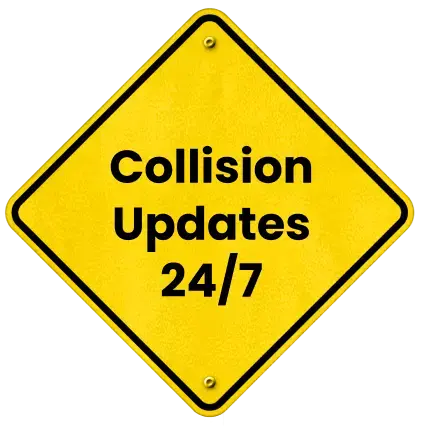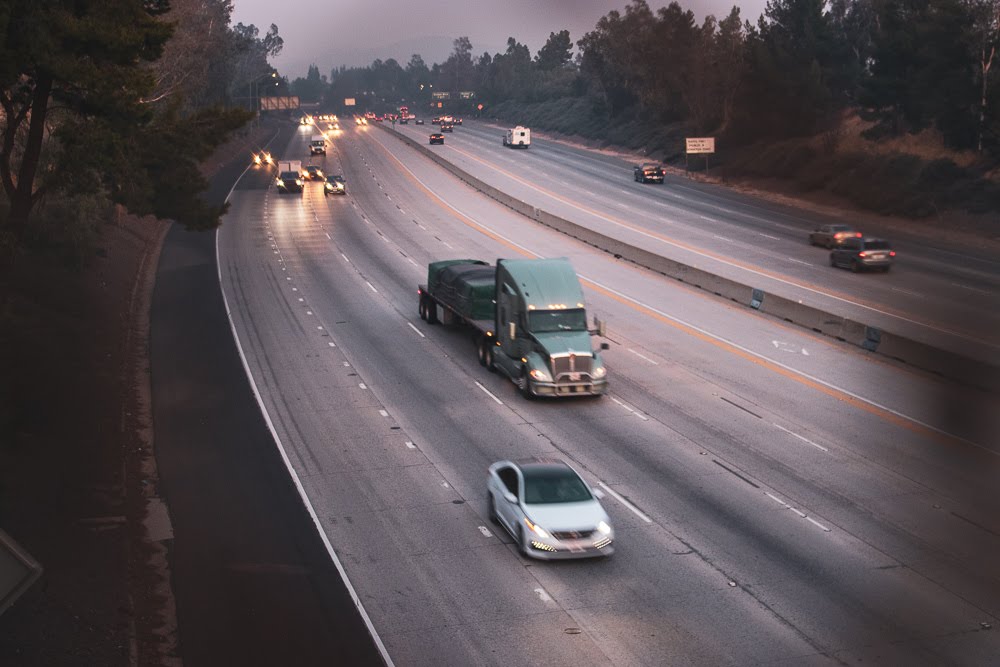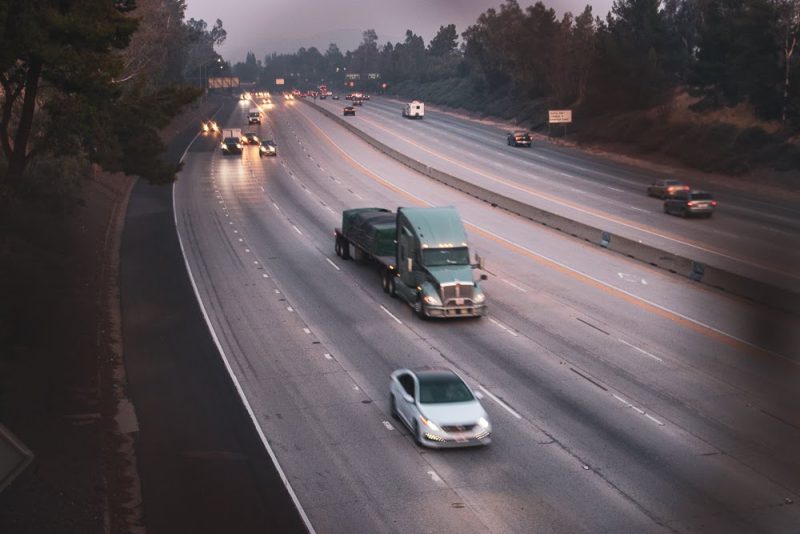
Work-Truck & Utility-Vehicle Crashes on I-70


Interstate 70 (I-70) stretches from Maryland to Utah, crossing busy metropolitan hubs, open plains, and steep mountain passes. Every day, thousands of commercial and utility vehicles travel this major corridor to deliver goods, perform repairs, and maintain critical infrastructure. However, the constant flow of fleet vehicles—from delivery vans to utility trucks—also increases the likelihood of collisions.
When an I-70 utility truck crash occurs, the consequences can be severe and potentially life-altering. Understanding the risks of fleet and utility vehicle operations, along with how maintenance and record-keeping affect safety, is essential for both companies and drivers who share this vital highway.
The Unique Risks of Fleet and Utility Vehicles on I-70
The geography and traffic conditions along I-70 create a perfect storm of risk factors for large work vehicles. Drivers must navigate congested interchanges, construction zones, and unpredictable weather patterns.
1. Heavy Loads and Frequent Stops: Utility trucks and fleet vehicles often carry tools, spare parts, and specialized equipment that can shift during travel. Poorly secured cargo raises the risk of rollovers or imbalance during sudden stops.
2. Distracted or Fatigued Driving: Long shifts are standard in maintenance and service operations. Fatigue can dull reaction times and increase the likelihood of collisions, particularly on long, straight stretches of highway like I-70 across Kansas.
3. Harsh Weather and Terrain: Sections of I-70 include steep grades and changing elevations. Drivers unaccustomed to mountain driving may misjudge braking distances or gear selection, leading to crashes involving multiple vehicles.
According to the Federal Highway Administration (FHWA), weather and maintenance issues contribute significantly to large truck crashes each year. Drivers and fleet managers must prioritize preparedness—ensuring that vehicles are equipped with proper tires, brakes, and emergency gear before traveling these challenging routes.
Maintenance Records: The Backbone of Fleet Safety
Proper vehicle maintenance is not just a regulatory requirement—it’s a key element of preventing fleet vehicle accidents on major corridors like I-70.
Why Maintenance Logs Matter
A company’s maintenance records are often among the first pieces of evidence reviewed after an I-70 utility truck crash. Investigators and insurance adjusters use these documents to determine whether the company followed proper inspection schedules, performed necessary repairs, and met all safety standards. In many cases, neglected maintenance can reveal patterns of oversight that directly contribute to serious collisions.
Some of the most common maintenance issues behind fleet-related crashes include worn or under-inflated tires, malfunctioning brake systems, steering or suspension failures, electrical faults or lighting defects, and poorly maintained load-securement systems. Any one of these problems can turn a routine drive into a catastrophic event, particularly on high-speed stretches of I-70 where large trucks share the road with passenger vehicles.
Regular inspections, detailed repair logs, and strict compliance with Department of Transportation (DOT) regulations are essential for preventing accidents and protecting both drivers and the public. When companies fail to uphold these duties, they not only compromise roadway safety but also expose themselves to significant legal and financial consequences. Maintaining accurate, up-to-date records and prioritizing vehicle care are critical steps in reducing liability and ensuring safer operation across the fleet.
Record-Keeping and Accountability
Federal regulations require commercial carriers to maintain detailed records for every vehicle in service. When such documentation is missing or incomplete, it can serve as evidence of negligence in the event of a fleet vehicle accident. Thorough and consistent documentation protects both the company and its drivers in the event of a crash or dispute.
Understanding Corporate and Commercial Liability on I-70
In the aftermath of a serious collision, determining who is legally responsible can be complex. The concept of commercial liability extends beyond the individual driver—it can encompass the employer, equipment manufacturers, and even third-party contractors involved in fleet operations.
Corporate Responsibility and Negligence
When a commercial or utility vehicle is involved in an accident, liability is often determined based on the company’s adherence to safety standards. Negligence may include: failure to maintain vehicles properly, inadequate driver training or supervision, forcing drivers to meet unreasonable delivery deadlines, or ignoring known safety violations.
If a company’s negligence contributes to a crash, victims may have the right to pursue compensation through a commercial liability claim. This process can involve multiple parties, from the vehicle owner to the maintenance contractor.
Shared Liability Scenarios
Many modern fleet operations rely on subcontracted drivers or independent maintenance providers, which can complicate legal outcomes because multiple entities may share responsibility for a crash. For example, a maintenance provider could be liable for improper brake repairs, the vehicle manufacturer might be responsible for a defective part, and the employer may share fault for failing to remove an unsafe vehicle from service. In these situations, victims often need legal assistance to navigate overlapping claims and determine who bears ultimate responsibility.
How an I-70 Truck Accident Lawyer Can Help You
After a collision involving a utility or fleet vehicle on I-70, victims face a maze of insurance policies, corporate defenses, and federal regulations. A skilled Truck Accident Lawyer can help untangle these complexities and ensure that victims’ rights are fully protected.
An attorney experienced in I-70 accident litigation will obtain police and crash reports, review company maintenance records and black-box data, identify negligent parties such as the driver, employer, manufacturer, or contractor, and work with accident reconstruction experts to determine what caused the crash. By analyzing maintenance logs, driver schedules, and company communications, the lawyer can uncover whether corporate negligence contributed to the accident.
Beyond securing compensation for medical bills and property damage, holding companies accountable for unsafe practices helps improve public safety across I-70. When businesses are required to uphold maintenance standards and fair driver policies, it reduces the likelihood of future fleet vehicle accidents.
Preventing an I-70 Utility Truck Crash: Corporate Responsibility and Victim Support
Corporate accountability is the cornerstone of safer highways. When companies maintain their vehicles properly, train drivers responsibly, and follow safety regulations, they not only protect their bottom line but also the lives of everyone sharing the road.
However, when negligence leads to disaster, victims should never face the aftermath alone. Whether you were injured in an I-70 utility truck crash or another fleet vehicle accident, understanding your legal options is crucial. Our dedicated team is here to help you navigate these challenges, hold negligent companies responsible, and pursue the compensation you deserve.
Contact an I-70 Truck Accident Lawyer
If you or a loved one has been injured in a commercial vehicle collision on I-70, we can connect you with an I-70 truck accident lawyer today. Get the guidance and representation you need to move forward with confidence and protect your rights under commercial liability law.

